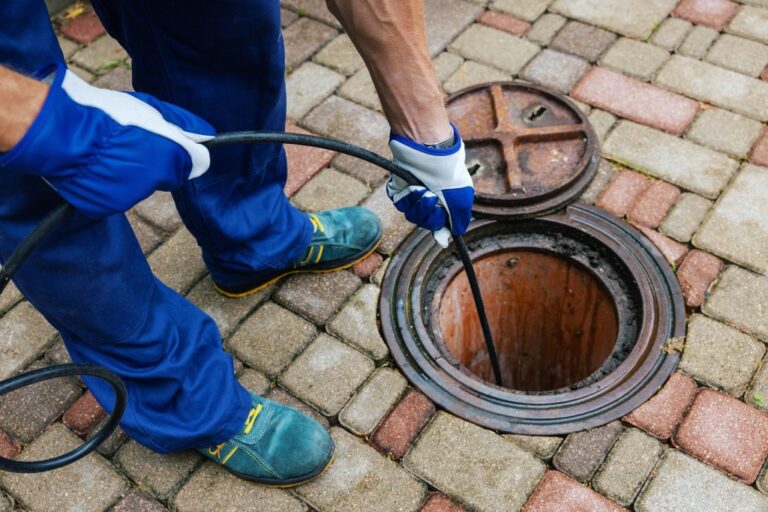When it comes to industrial services, vacuum trucks are highly adaptable workhorses that can be used in a multitude of sectors. These specialized cars are essential to keeping environments safe and clean, from waste management to environmental cleanup. We’ll examine vacuum truck services in more detail in this extensive blog post, including their functions, a variety of uses, and situations in which companies and sectors can profit from them.
Comprehending Vacuum Trucks
Often referred to as vacuum tankers or vac trucks, vacuum trucks are specially built automobiles that have powerful vacuum pumps and storage tanks. Many different types of liquid, sludge, and solid waste materials from construction sites, industrial sites, and municipal facilities can be suctioned and transported by these trucks. Different applications and operating environments require different sizes and configurations of vacuum trucks.
Workings of Vacuum Trucks
A high-capacity vacuum pump, usually driven by a diesel engine or hydraulic system, is the central component of every vacuum truck. By partially suctioning the tank, the vacuum pump forces air and waste materials into it through atmospheric pressure and a suction or vacuum hose. After entering the tank, the waste products are contained before being moved to a specific treatment plant or disposal site for additional processing.
To improve their usefulness and adaptability, vacuum trucks come with an array of add-ons and features, which include:
1. Suction Hose: To effectively suction liquids, sludge, and debris from tight spaces or difficult-to-reach areas, a flexible suction hose is used to connect the vacuum truck to the waste material source.
2. Storage Tank: The main containment vessel for gathered waste materials is the storage tank, also referred to as the debris tank or vacuum tank. Tanks are available in a range of sizes and configurations, from several hundred to several thousand gallons, contingent upon the particular needs of the task.
3. Pressure Relief Valve: Vacuum trucks are outfitted with pressure relief valves, which automatically release excess pressure buildup, to prevent overpressurization of the tank and guarantee safe operation.
4. Filtration System: To remove solids and contaminants from liquid waste streams and enable more effective handling and disposal, many vacuum trucks are outfitted with cyclone separators or filtration systems.
5. Discharge System: To unload waste materials at disposal sites or treatment facilities, vacuum trucks can be outfitted with gravity-fed systems or discharge pumps. High-pressure water jets are another feature that some trucks have for cleaning.
Uses for Vacuum Truck Services
There are many different industries and sectors where vacuum truck services are used, including:
1. Environmental Cleanup: For tasks including spills, leaks, and the remediation of contaminated soil or water, vacuum trucks are frequently utilized. Oil, chemicals, and pollutants are just a few of the toxic or hazardous materials they can suction up for safe disposal or treatment.
2. Industrial Waste Management: As a byproduct of their operations, many industries produce liquid, sludge, or solid waste materials. For the economical and effective transportation and disposal of these waste materials, vacuum trucks lower the possibility of environmental contamination and legal infractions.
3. Municipal Services: Catch basin upkeep, stormwater drainage, and sewer cleaning are just a few of the municipal services that vacuum trucks are essential to. To stop backups and flooding, they can clear blockages, silt, and debris out of culverts, drainage systems, and sewer lines.
4. Construction and Demolition: Vacuum trucks are used to remove waste materials, concrete slurry, and other construction debris from job sites during construction and demolition activities. They can also help with groundwater extraction, sediment runoff control, and dewatering excavations.
5. Oil and Gas Industry: Drilling mud removal, spill response, and tank cleaning are just a few of the jobs vacuum trucks are used for in this sector. In accordance with industry regulations, they are able to handle flammable or hazardous materials like oil, drilling fluids, and produced water safely.
When to Hire Services of Vacuum Trucks
The following scenarios are where businesses and industries can profit from tanker truck services:
1. Spill Cleanup: Vacuum trucks can react rapidly to contain and remove spilled material, reducing environmental damage and health risks, in the event of an oil spill, chemical spill, or release of hazardous material.
2. Tank Cleaning: In industrial settings, vacuum trucks are the best tools for cleaning and emptying storage tanks, silos, and process vessels. Tanks containing leftover liquids, sludge, or solids can be removed for upkeep, inspection, or decommissioning.
3. Drainage and Dewatering: Stormwater drainage, sewage cleaning, and dewatering are common uses for vacuum trucks. To stop flooding and water pollution, they can clear standing water, silt, and debris from culverts, drainage systems, and excavation sites.
4. Waste Transportation: Vacuum trucks provide a dependable way to move liquid, sludge, or solid waste materials to approved disposal sites or treatment plants when conventional waste disposal techniques are unworkable or inadequate.
5. Emergency Response: In the event of an environmental emergency, such as a chemical spill, a natural disaster, or an industrial accident, vacuum trucks are invaluable resources for emergency response teams because they enable quick deployment and containment capabilities.
In Summary
Offering practical and efficient solutions for managing a variety of liquid, sludge, and solid waste materials, vacuum truck services are essential to waste management, environmental cleanup, and industrial services. Businesses and industries can use vacuum trucks to maintain safe and clean environments, adhere to regulations, and safeguard the environment and public health by knowing how they operate, their many uses, and when to use them. Vacuum trucks are essential resources that help keep our communities sustainable, hygienic, and clean—whether they are being used for regular maintenance or in an emergency, click here to learn more.
![Инстаграм Блог - Исправьте свои проблемы [Советы и рекомендации]](https://wikigeneral.net/wp-content/uploads/2023/05/cropped-Инстаграм-Блог-Исправьте-свои-проблемы-Советы-и-рекомендации.webp)




